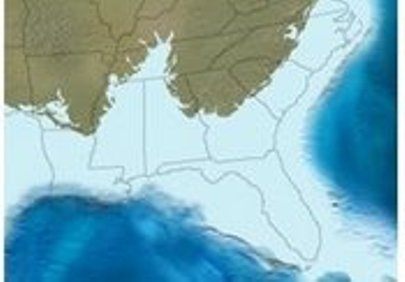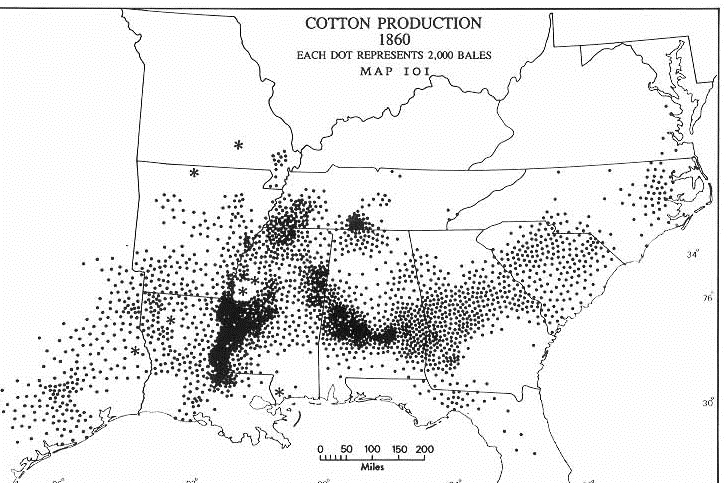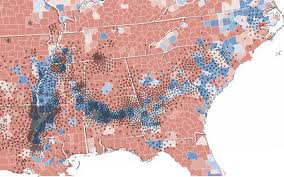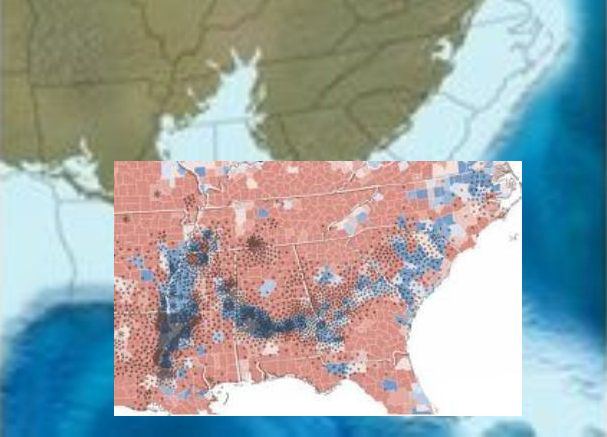The ol' Bloviator learned a mighty long time ago that when we academic types make any attempt to engage the public through the media, the odds are better than even that we will either be misquoted by representatives of said media or castigated mercilessly by members of said public who don't particularly care for our opinions or, as in his most recent experience, both. The OB has been rebuked, reviled, ridiculed, and even threatened by an irate citizenry so often that after talking with a reporter for the Hotlanta paper about the novel and recently released film version of The Help, he was not exactly surprised to find the following missive coiled and ready to strike when he opened his trusty Inbox yesterday morning:
Sir: I have posted unflattering comments about you, and feel it necessary to inform you of them On the Atlanta Journal-Constitution Commentary on the Movie "The Help" <http://shar.es/HUXBo>
The wording here is meant to suggest that the writer feels honor-bound to inform me that he has taken issue with me in a public forum. The literal translation is closer to "I went to the trouble to say some really hateful things about you, and I'd be really pissed if you didn't see them." Meaning to suggest that his satisfaction would be denied him, the OB replied thusly:
Sir, I am in receipt of your information and most grateful for your courtesy in informing me. However, having never received unflattering comments before, I think it best to avoid reading your remarks rather than risk the emotional devastation they might inflict.
The OB was merely funning Mr. Mean-Spirited, of course, 'cause he knew all along his curiosity would get the better of him, and he'd have to take a peek. Before we get into that though, let's take a look at what the OB actually said (as well what that lyin' Atlanta rag says he said) that got his new worst enemy so torqued off. First off, yours truly got irritated right off the bat because the piece was titled "Black, White Atlantans talk about 'The Help.'" The OB has made it abundantly clear on numerous occasions over many years that he is a native of Hart County, Georgia, and proud of it. He harbors no ambition whatsoever to be associated with Atlanta, and right-thinking Atlantans, a few of whom he even numbers as friends, would doubtless avow that the feeling is absolutely mutual. At any rate, this is what ran in the paper with the OB's name attached:
That whole business of employing black women as domestic workers is part of the foundation for how the economy worked in the South. Having a black maid was a status symbol. A lot of whites at the time were not particularly wealthy but they were able to have help because they paid those women and men as little as they did.
'I grew up in Hart County and my parents would ask black folks to help out if we were cleaning out an old barn or killing chickens. My family would want to pay them in the form of old clothes once the work was done. It was clear that the black people wanted money for their work, but they had no recourse during that time. Some people say, 'Well if things were that bad, why did they put up with it?' Well it's clear that there weren't a lot of options for them doing much else.
And for the black people doing the work, it wasn't that they had to do it, it was that they had to act like they were grateful and happy do it. The so-called decent white folks got a lot of psychological gratification, or either willed themselves into thinking that, 'I'm really helping these people and they are so grateful to me and I'm doing something good.'"
Ok, Ok, though the OB admits he might have said some of it better, the foregoing is a reasonable approximation of what he recalls coming out of his mouth. Unfortunately, so is this:
I would say that today having someone come in to clean your house is possibly more of a middle-class marker or benchmark in the South more so than in other parts of the country.
In this case, the OB should have stuck to history, which is his home turf. There is a ton of evidence indicating that having a black servant in the Jim Crow era was a definite status symbol for whites with aspirations to be seen as middle or upper class. Although the OB still feels he may be right in what he said about the contemporary South, he admits his remark about the lingering symbolic importance of having domestic help today was largely impressionistic, and he wishes he hadn't made it.
The remaining verbiage linked to the OB, however, definitely belongs in the "where the hell did that come from?" category:
Then you look at today, and I hate to say this, but there are academics who can be the most liberal folks and they have domestics. So you just can't jump to judgment on somebody who has a domestic servant now. But there's no question that things are different now, but it is a matter of class.
What the OB actually said was that he had known liberal white academics over the years who criticized their white colleagues who hired black housekeepers, etc., for perpetuating certain vestiges of Jim Crow as if the women who could find no other work and really needed the money would have been better off penniless and unemployed.
As to his ardent detractor du jour (who also spews a little venom at others quoted in the article), the OB will allow him to speak for himself, for his comments reveal not just volumes but an entire library about their author:
As I reflect on the superfluous comments by this racially imbalanced panel of five "experts" I must insist, to be fair and balanced, that the reader follow my link to a FaceBook thread of the "Buckhead Native" Group, which serves to far better inform any interested person of the unusual nature of the relationship between white women, the employers, and black women, the employed, as seen by the children of those white women, many of whom were raised by their black maids. This thread:
(https://www.facebook.com/groups/45120523937/?view=permalink&id=10150261075683938),
What is amazing to me, a child as described above, literally raised by our maid, our mammy, Carolyn Manning, is that other than Wynette Blathers, who was a maid, , I can not imagine that either Professor Beverly Guy-Sheftall or the Honorable Julian Bond, both of whom were the elite children of educated "Middle Class" black parents, and both of whom could well be described as "high yellow" African Americans, have any real understanding, other than academic or apocryphal, of the conditions of employment or the nature of the often personal emotional ties that the white wives had with their help. Nor can I assume, based on his observations, that Professor James C. Cobb ever laid his head on the bosom of his black maid and sobbed over some school day disappointment while this dearest of all women, his maid or mammy, comforted him....
Dr. Cobb, surely a Cracker, remains shocked that liberal white folks have domestics, "but it is a matter of class." The guilt he must feel that his parents would want to pay "them" (their farm help) in old clothes once the work was done. This professor's red neck shines brightly as he casually notes " . . . it was like they had to act grateful and happy to do it" and of course he notes" so-called decent white folks got a lot of psychological gratification or felt "I'm helping these people . . . (they must be)so grateful to me . . . (I'm) doing something good"
Dr Cobb, as I reflect on your comments, I don't believe you have been so close to a load of manure since you last visited your family farm in Hart County, Georgia. I've read a number of your articles and your blog, and am amazed that you manifest such a lower middle class "guilt" driven understanding of Southern Culture, and I can surely appreciate that a University lead by a boyishly sycophantic upwardly motile "wanna be" southern gentleman, as Doctor Michael F Adams is, would have you as a Spalding Distinguished Research Professor, Southern History and Culture, but really, your comment "having a black maid was a status symbol" is neither well researched nor well considered. (Wrong on both counts, see above. Sorry, couldn't resist. OB)
Well, he doesn't know about you, but the OB surely hopes his chief critic feels better now. In fact, although he can't vouch for the film version of Kathryn Stockett's novel, the OB is actually indebted to the one who heaps such vitriol upon him for inadvertently making the best possible case for why it is such a good thing that The Help has been so firmly fixed at or near the top of the best-seller list for so long.






